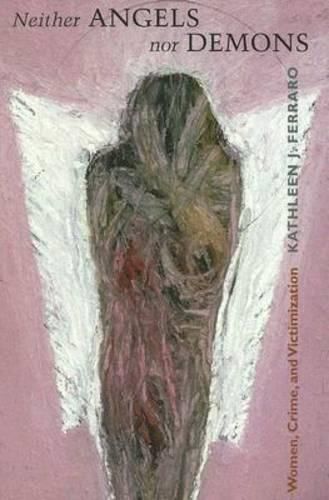Readings Newsletter
Become a Readings Member to make your shopping experience even easier.
Sign in or sign up for free!
You’re not far away from qualifying for FREE standard shipping within Australia
You’ve qualified for FREE standard shipping within Australia
The cart is loading…






She is a victim of intimate partner violence, a woman who has been harmed. She is a criminal offender, a woman who has harmed others. Superficially, it seems she is two separate women. Victim and offender are binary categories used within law, social science, and public discourse to describe social experiences with a moral dimension. Such terms draw upon cultural narratives of good and bad people and have influenced scholarship, public policy, and activism. The duality of good and bad women, separated into mutually exclusive extremes of angels and demons, has helped segregate thinking about, and responses to, each group. In this groundbreaking study, Kathleen J. Ferraro exposes the limits of such thinking by exploring the link between victimization and offending from the perspective of the women charged with the crimes. Interviewing forty-five women charged with criminal offenses (more than half of whom killed their abusers; the others participated in a range of violent crimes related to domestic violence), Ferraro uses their stories to illuminate complex interactions with violent partners, their children, and the legal system. She shows that these women are neither stereotypical angels nor demons, but rather human beings whose complicated lives belie the abstract categorizations of researchers, legal advocates, and the criminal justice system. Ferraro begins with a general discussion of blurred boundaries and the complexity of experience, and moves from there to discuss women’s interactions with the criminal processing system. In the course of her study, she reexamines, and finds wanting, many standard ways of evaluating women’s violent behavior, including mutual combat,
battered woman syndrome, and cycle of violence. She argues that a more complex, nuanced understanding of intimate partner violence and how it contributes to women’s offending will contribute to public policy less focused on control and accountability of individuals than on developing social conditions that promote everyone’s safety and well-being and foster a sense of hope.
$9.00 standard shipping within Australia
FREE standard shipping within Australia for orders over $100.00
Express & International shipping calculated at checkout
She is a victim of intimate partner violence, a woman who has been harmed. She is a criminal offender, a woman who has harmed others. Superficially, it seems she is two separate women. Victim and offender are binary categories used within law, social science, and public discourse to describe social experiences with a moral dimension. Such terms draw upon cultural narratives of good and bad people and have influenced scholarship, public policy, and activism. The duality of good and bad women, separated into mutually exclusive extremes of angels and demons, has helped segregate thinking about, and responses to, each group. In this groundbreaking study, Kathleen J. Ferraro exposes the limits of such thinking by exploring the link between victimization and offending from the perspective of the women charged with the crimes. Interviewing forty-five women charged with criminal offenses (more than half of whom killed their abusers; the others participated in a range of violent crimes related to domestic violence), Ferraro uses their stories to illuminate complex interactions with violent partners, their children, and the legal system. She shows that these women are neither stereotypical angels nor demons, but rather human beings whose complicated lives belie the abstract categorizations of researchers, legal advocates, and the criminal justice system. Ferraro begins with a general discussion of blurred boundaries and the complexity of experience, and moves from there to discuss women’s interactions with the criminal processing system. In the course of her study, she reexamines, and finds wanting, many standard ways of evaluating women’s violent behavior, including mutual combat,
battered woman syndrome, and cycle of violence. She argues that a more complex, nuanced understanding of intimate partner violence and how it contributes to women’s offending will contribute to public policy less focused on control and accountability of individuals than on developing social conditions that promote everyone’s safety and well-being and foster a sense of hope.